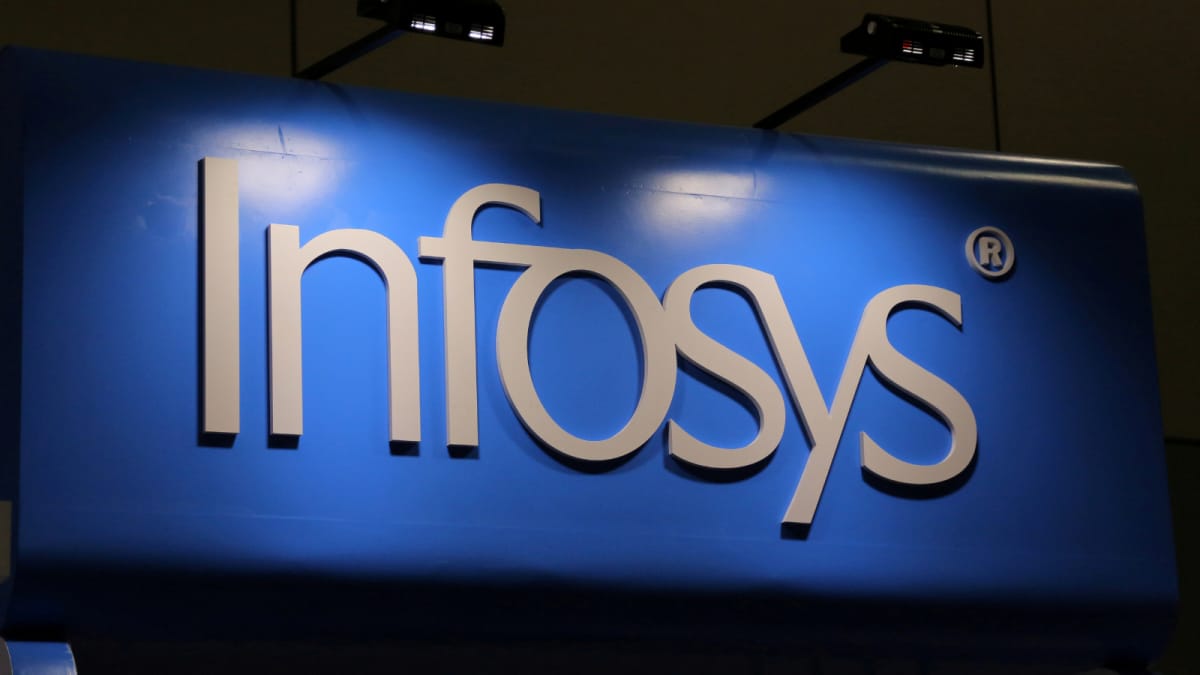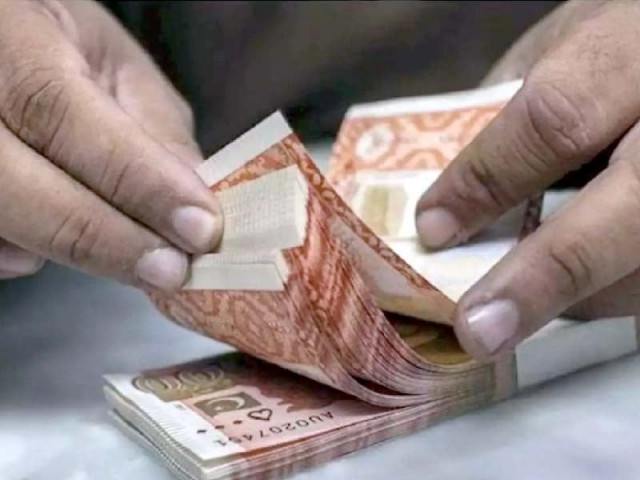Business
Trump admin draws unproven link between autism and Tylenol ingredient use during pregnancy

In this photo illustration, Tylenol caplets are displayed on Sept. 22, 2025 in San Anselmo, California.
Justin Sullivan | Getty Images
The Trump administration on Monday drew an unproven link between autism and pregnant women’s use of acetaminophen, the active ingredient in one of the world’s most common over-the-counter pain relievers, Kenvue‘s Tylenol.
President Donald Trump said the Food and Drug Administration will issue a physician’s notice about the risk of patients using acetaminophen during pregnancy unless they have a fever. The agency will also start the process of changing the safety label for acetaminophen on Tylenol and similar products.
The moves clash with a bulk of scientific literature suggesting no causal link between autism and exposure to acetaminophen in the womb.
Many over-the-counter drugs contain acetaminophen, but Tylenol is widely considered the safest treatment to take during pregnancy to relieve pain and fever, as long as patients use the recommended dose.
“Taking Tylenol is not good,” Trump said during a press conference on Monday. “They are strongly recommending that women limit Tylenol use during pregnancy unless medically necessary. That’s for instance, in cases of extremely high fever, that you feel you can’t tough it out, you can’t do it.”
The Health and Human Services Department will encourage clinicians to “exercise their best judgment” around the use of acetaminophen during pregnancy by “prescribing the lowest effective dose with the shortest necessary duration and only when treatment is required,” the department’s Secretary Robert F. Kennedy Jr. said during the press briefing.
HHS will launch a nationwide campaign to inform patients about the alleged risk, Kennedy said.
In a statement Monday, Kenvue said it believes in “independent, sound science” that shows taking acetaminophen does not cause autism, and “we strongly disagree with any suggestion otherwise and are deeply concerned with the health risk this poses for expecting mothers.” Without the drug as an option, women may have to experience conditions like fever that are potentially harmful to both them and their babies, or use riskier alternatives, Kenvue said.
Untreated fever and pain during pregnancy can carry risks for both mother and infant, such as miscarriage, birth defects and high blood pressure, according to the Society for Maternal-Fetal Medicine.
FDA Commissioner Marty Makary suggested that treating a fever “can prolong the duration of illness in a young kid,” citing a study from Johns Hopkins, without further details.
“Maybe that’s because a fever is a body’s natural way of ridding an infection,” Makary said.
Trump, several times during the briefing, said “there’s no downside” to not taking Tylenol during pregnancy or in a baby’s early life.
FDA clears lesser-known drug
Also on Monday, the FDA approved a lesser-known drug, leucovorin, as a treatment for autism, Centers for Medicare & Medicaid Services Administrator Dr. Mehmet Oz said during the briefing.
The agency is specifically updating leucovorin’s label for cerebral folate deficiency, which HHS said has been associated with autism. The change will allow children with autism to be treated with the drug, with continued use if kids show language, social or adaptive gains, according to an HHS release.
But HHS said leucovorin is not a cure for autism and may only lead to improvements in speech-related deficits for a subset of children with the disorder. State Medicaid programs will be able to cover the drug for autism after the label update. The NIH will also start trials to confirm the effects of leucovorin on the disorder, including studies into the medicine’s safety.
While promising, it is important to note that leucovorin is not a cure for ASD and may only lead to improvements in speech-related deficits for a subset of children with ASD. Furthermore, this treatment must be administered under close medical supervision and in conjunction with other non-pharmacological approaches for children with ASD (e.g., behavioral therapy).
Leucovorin is a form of folate, a B vitamin, that is typically prescribed to counteract some medications’ side effects, including chemotherapy, and to treat vitamin B9 deficiency. Some early placebo-controlled clinical trials have shown that oral leucovorin, also known as folinic acid, has the potential to improve symptoms in children with autism spectrum disorder.
The Food and Drug Administration early Monday published a notice saying it is approving a version of leucovorin that was previously made by GSK, the Wall Street Journal reported. But as of Monday afternoon, the Federal Register’s website said it has received an “agency letter” asking to withdraw the notice.
In a statement, a GSK spokesperson said it does not intend to market leucovorin. The company marketed the drug from 1983 to 1999 under the name Wellcovorin, but the product was withdrawn from the market and has since been available as a generic drug. The spokesperson said label changes made to Wellcovorin will help allow generics already on the market to add this new approval for autism to their labeling.
Acetaminophen is the latest widely used and accepted treatment that Robert F. Kennedy Jr. has undermined at the helm of the Health and Human Services department, which oversees federal health agencies that regulate drugs and other therapies. Kennedy has also taken steps to change vaccine policy in the U.S., and has amplified false claims about safe and effective shots that use mRNA technology.
Kennedy has made autism a key focus of HHS, pledging in April that the agency will “know what has caused the autism epidemic” by September and eliminate exposures. He also said that month that the agency has launched a “massive testing and research effort” involving hundreds of scientists worldwide that will determine the cause.
Much of the scientific community agrees that autism results from a complex mix of genetic and environmental factors, making it unlikely that rising rates of the disorder are due to a single cause.
Kennedy said HHS expects several announcements over the coming years that inform parents about the underlying cause of autism and “potential paths for prevention and reversal.” He acknowledged that autism is a complex disorder caused by a combination of factors and said HHS is continuing to investigate other factors, such as vaccines.
“One area that we are closely examining … some 40% to 70% of mothers with autism believes that her child was injured by a vaccine,” Kennedy said. “President Trump believes that we should be listening to these mothers instead of gaslighting like prior administrations.”
Extensive research has debunked longstanding concerns that vaccines are linked to autism, a claim that Kennedy and other immunization critics have pushed for several years.
Research on acetaminophen use and autism
The Washington Post on Friday reported that Trump administration officials have been reviewing previous research that suggests a link between the use of acetaminophen during pregnancy and an increased risk of autism. The Post said that includes an August review by Mount Sinai and Harvard researchers on 46 earlier studies that suggest a link between prenatal exposure to the drug and increased risks of neurodevelopmental disorders, such as autism or attention deficit hyperactivity disorder, or ADHD.
The review found the association is strongest when acetaminophen is taken for four weeks or longer, Dr. Andrea Baccarelli, one of its authors and dean of the faculty at the Harvard T.H. Chan School of Public Health, said in a statement. The review was funded by a grant from the National Institutes of Health.
“This biological evidence lends support to the possibility of a causal relationship between prenatal acetaminophen exposure and neurodevelopmental disorders, including autism,” Baccarelli said, adding that further research is needed to “confirm the association and determine causality.”
He said based on existing evidence, he believes that “caution about acetaminophen use during pregnancy—especially heavy or prolonged use—is warranted.” But Baccarelli said acetaminophen remains a critical tool for pregnant women and their physicians, as the drug is the only approved medication for pain and fever relief during pregnancy.
He said he and his colleagues recommend a “balanced approach based on the precautionary principle:” patients who need fever or pain reduction during pregnancy should take the lowest effective dose of the drug for the shortest possible duration, after consulting their physician about their individual risks and benefits of doing so. Baccarelli said he discussed that recommendation and the review’s findings with NIH Director Jay Bhattacharya and Kennedy in recent weeks.
The findings of the studies reviewed by the researchers are at odds with other robust studies, including one published last year in the Journal of the American Medical Association that found acetaminophen use during pregnancy was not linked to autism, ADHD or intellectual disability. Researchers analyzed health records of 2.5 million children in Sweden.
When researchers looked at the general population initially, there was a very small increased risk of the disorder in children whose mothers took the drug while pregnant. But researchers found no link after comparing siblings within the same family: one exposed to acetaminophen during pregnancy, and the other not.
As of Monday before the announcement, the FDA website said the agency had not found “clear evidence” that appropriate use of acetaminophen during pregnancy causes “adverse pregnancy, birth, neurobehavioral, or developmental outcomes.” The American College of Obstetricians and Gynecologists maintains that acetaminophen is safe during pregnancy when taken as directed and after consulting a health-care provider.
Some parents have brought lawsuits claiming that they gave birth to children with autism after using the painkiller.
But a federal judge in Manhattan ruled in 2023 that some of those lawsuits lacked scientific evidence and later ended the litigation in 2024.
— CNBC’s Angelica Peebles contributed to this report
Business
Without Rera data, real estate reform risks losing credibility: Homebuyers’ body – The Times of India

New Delhi: More than 75% of state real estate regulators, Reras, have either never published annual reports, discontinued their publication or not updated them despite statutory obligation and directions from the housing and urban affairs ministry, claimed homebuyers’ body FPCE on Friday. It released status report of 21 Reras as of Feb 13.The availability of updated annual reports is crucial as these contain details of data on performance of Reras, including project completion status categorised by timely completion, completion with extensions, and incomplete projects. The ministry’s format for publishing these reports also specifies providing details such as actual execution status of refund, possession and compensation orders as well as recovery warrant execution details with values and list of defaulting builders.FPCE said annual report data is not only vital for homebuyers to assess system credibility, but is equally necessary for both state and central govts to frame effective policies, design incentivisation schemes, and develop tax policy frameworks.“Unless we have credible data proving that after Rera the real estate sector has improved in terms of delivery, fairness, and keeping its promises, we are merely firing in the air,” said FPCE president Abhay Upadhyay, who is also a member of the govt’s Central Advisory Council on Rera.As per details shared by the entity, seven states — Karnataka, Tamil Nadu, West Bengal, Andhra Pradesh, Himachal Pradesh and Goa — have never published a single annual report since Rera’s implementation, and nine states, including Maharashtra, Uttar Pradesh and Telangana, which initially published reports, have discontinued the practice.Upadhyay said when regulators themselves don’t follow the law, they lose the legal right to demand compliance from other stakeholders. “Their failure emboldens builders and weakens the very system they are meant to safeguard,” he said.
Business
Infosys Rolls Out 85% Average Performance Bonus In Q3FY26, Best In Over 3 Years

Last Updated:
Over recent quarters, payouts had gradually improved from roughly 65 percent to 80 percent and now to an average of about 85 percent in Q3FY26.


Infosys logo is seen.
IT major Infosys rolled out performance bonus payouts averaging around 85 percent for the quarter ended December 31, 2025 (Q3FY26), marking the strongest variable pay outcome for eligible employees in at least the past three-and-a-half years, Moneycontrol reported citing people in the know.
The bonus payout for mid- to junior-level employees ranges between 75 percent and 100 percent, with most employees clustering around the organisation-wide average of 85 percent, the report said. The development signals a steady recovery in variable compensation at the Bengaluru-headquartered IT services firm. Over recent quarters, payouts had gradually improved from roughly 65 percent to 80 percent and now to an average of about 85 percent in Q3FY26.
Employees are expected to receive their bonus letters over the next few days, with the payout scheduled to be credited along with their February salary.
One employee told the outlet that it is the strongest bonus outcome seen in recent years. The payout is also among the rare instances since the Covid-19 period when variable pay has approached the upper end of the eligible range.
Infosys last paid out 100 percent variable compensation during the pandemic. In the quarters that followed, payouts were lower amid macroeconomic uncertainty and a broader slowdown in client spending across global markets.
The higher payout comes at a time when global IT stocks have faced renewed pressure, driven by concerns over rapid advances in artificial intelligence and their potential impact on traditional IT services models.
Shares of global IT firms have seen sharp sell-offs in recent weeks amid heightened investor focus on AI leaders such as Anthropic. Investors fear that generative AI tools could compress pricing, automate routine services work and reduce demand for legacy outsourcing models.
Against that backdrop, the improved bonus payout at Infosys is being viewed as a signal of operational resilience and near-term performance strength, even as sentiment around the broader IT sector remains cautious.
February 13, 2026, 21:44 IST
Read More
Business
Why you should consider switching bank accounts

Martin Lewis explains why now might be a good time to think about changing your bank account.
Source link
-

 Entertainment1 week ago
Entertainment1 week agoHow a factory error in China created a viral “crying horse” Lunar New Year trend
-

 Business3 days ago
Business3 days agoAye Finance IPO Day 2: GMP Remains Zero; Apply Or Not? Check Price, GMP, Financials, Recommendations
-

 Tech1 week ago
Tech1 week agoNew York Is the Latest State to Consider a Data Center Pause
-

 Tech1 week ago
Tech1 week agoPrivate LTE/5G networks reached 6,500 deployments in 2025 | Computer Weekly
-

 Tech1 week ago
Tech1 week agoNordProtect Makes ID Theft Protection a Little Easier—if You Trust That It Works
-

 Business1 week ago
Business1 week agoStock market today: Here are the top gainers and losers on NSE, BSE on February 6 – check list – The Times of India
-

 Fashion3 days ago
Fashion3 days agoComment: Tariffs, capacity and timing reshape sourcing decisions
-

 Business1 week ago
Business1 week agoMandelson’s lobbying firm cuts all ties with disgraced peer amid Epstein fallout














